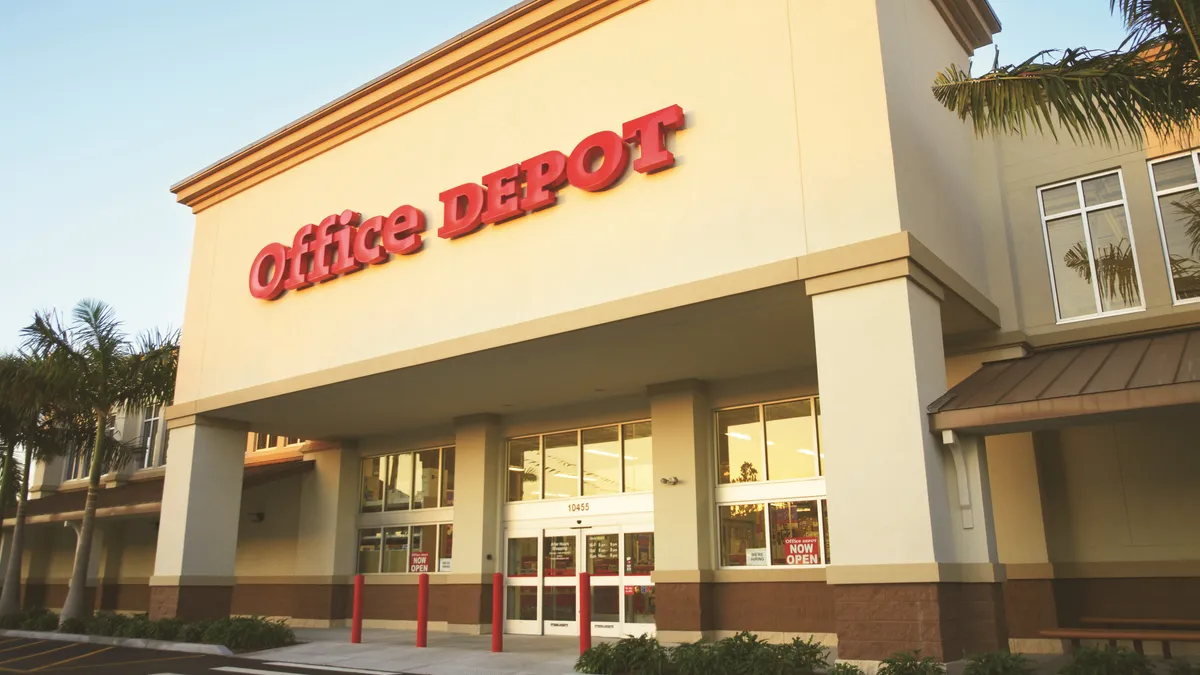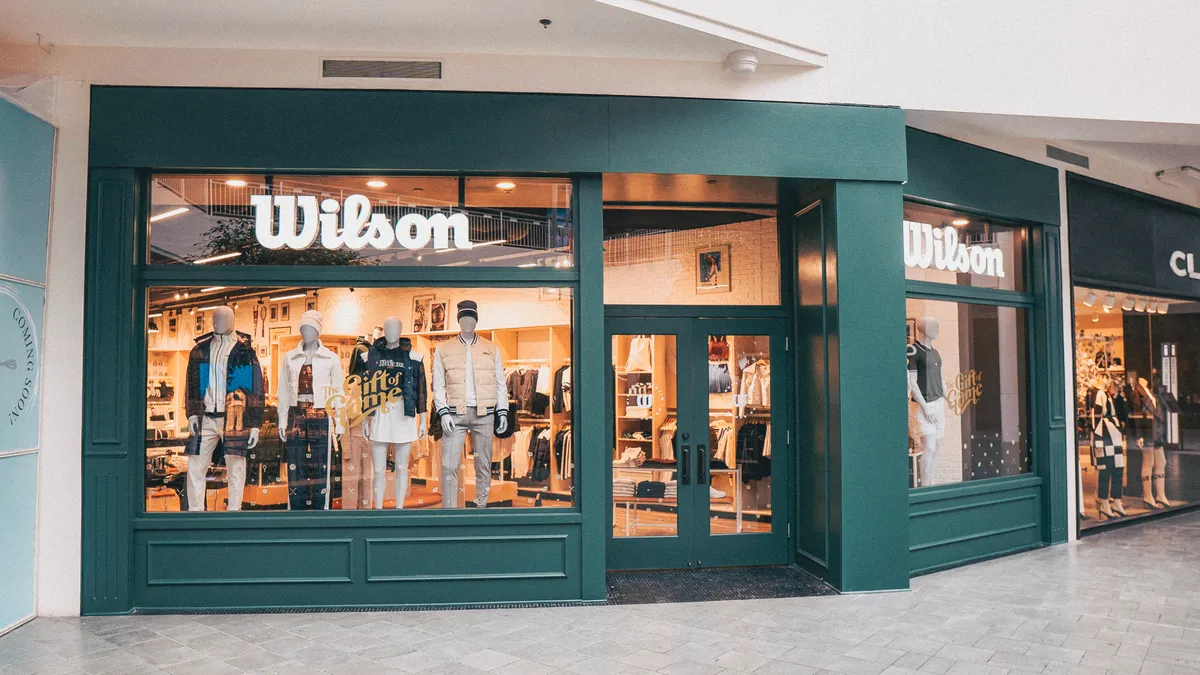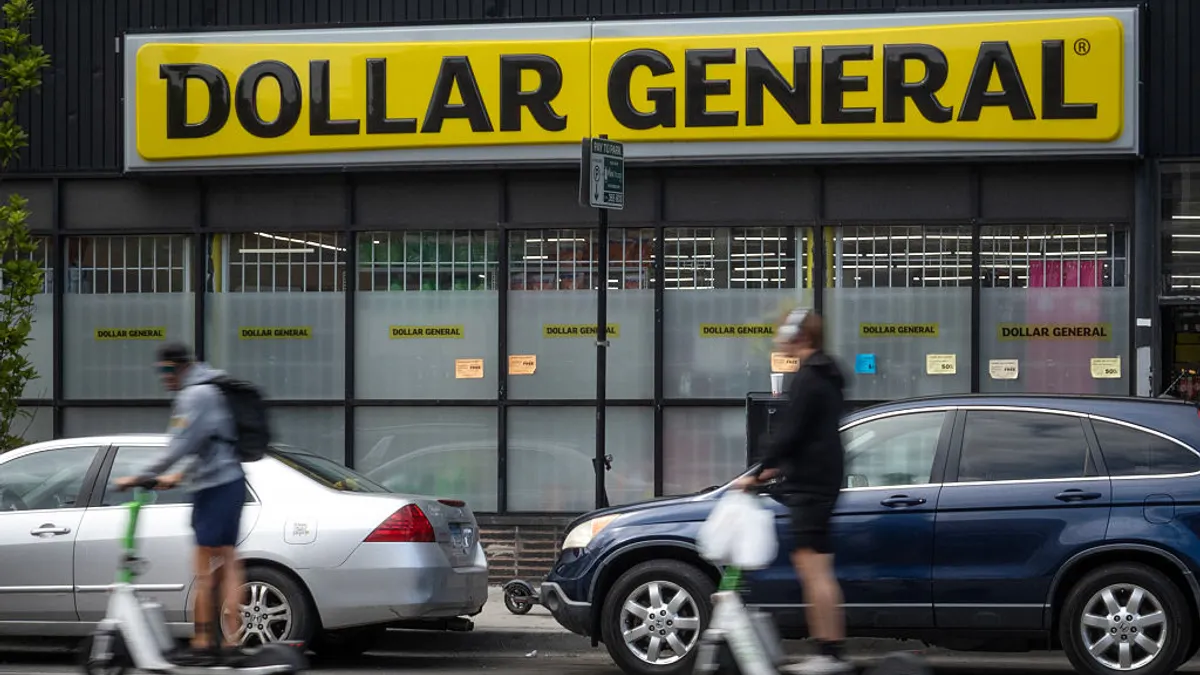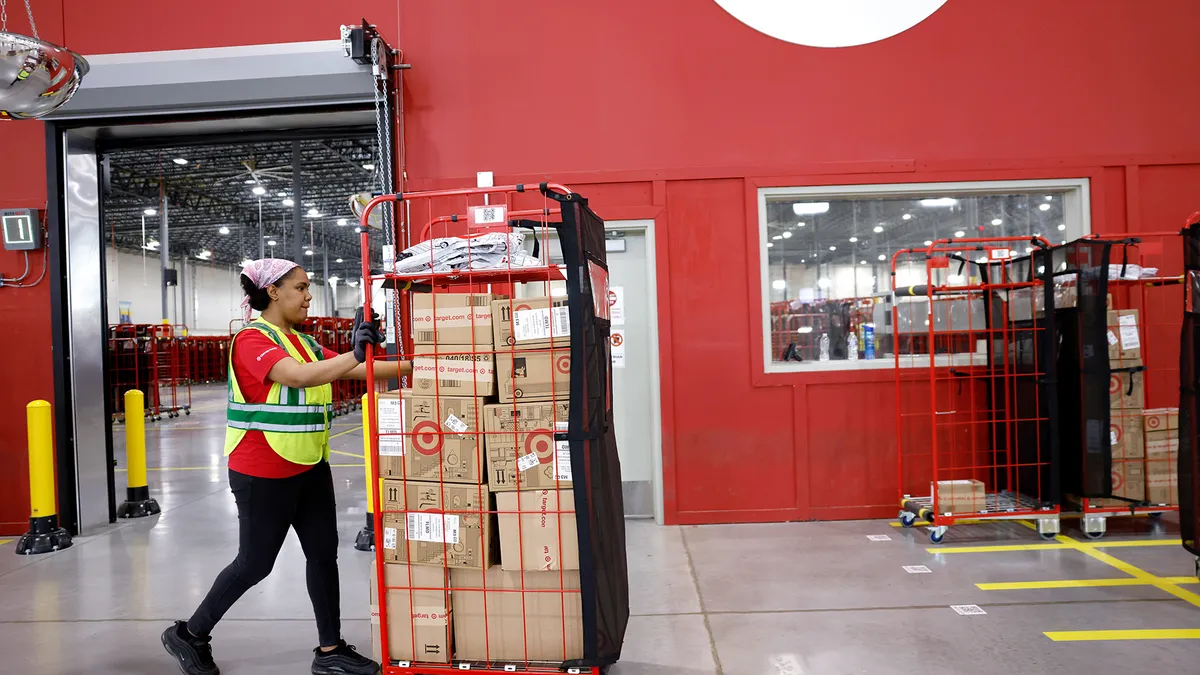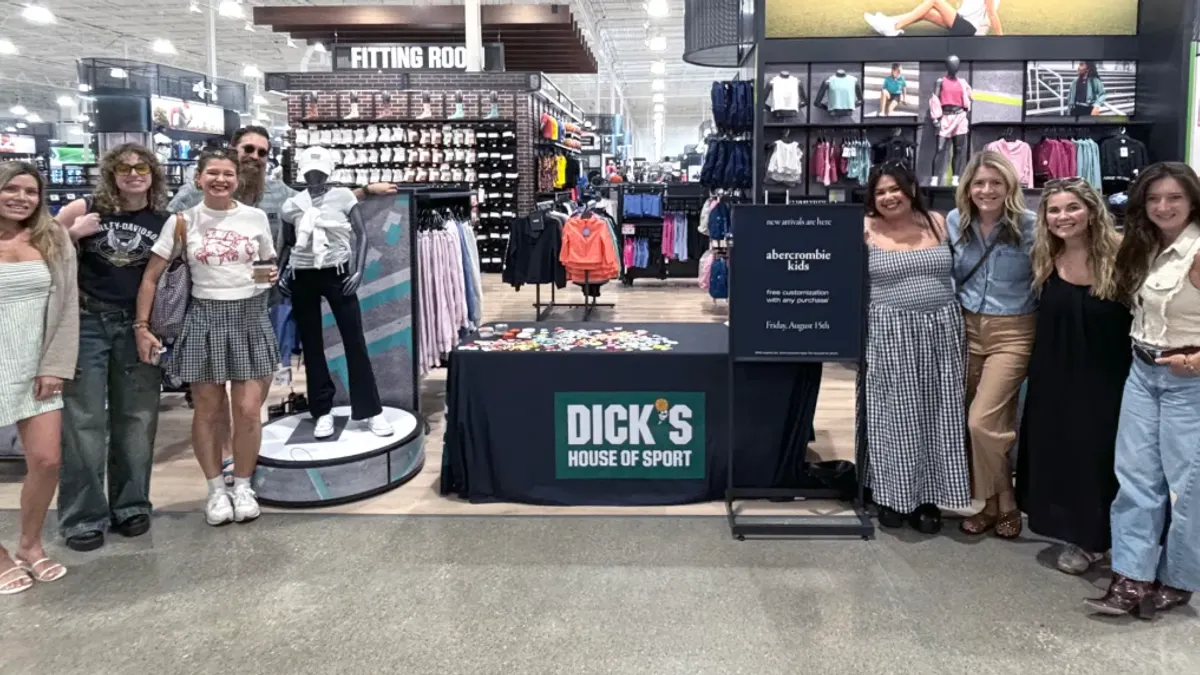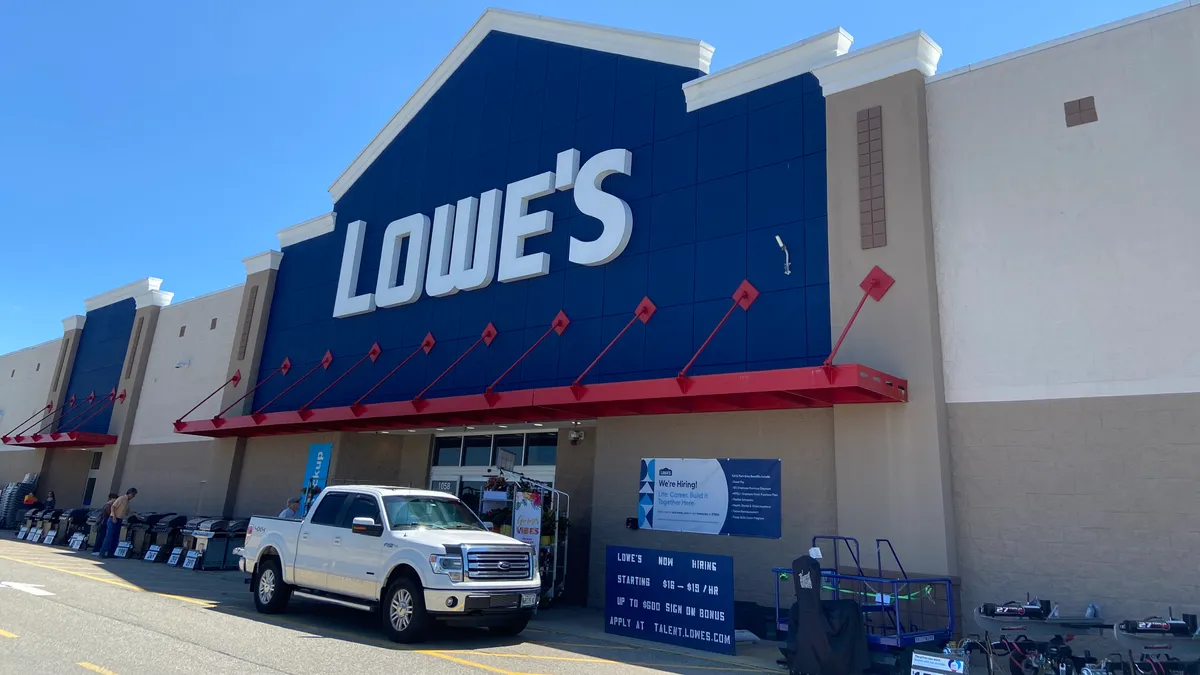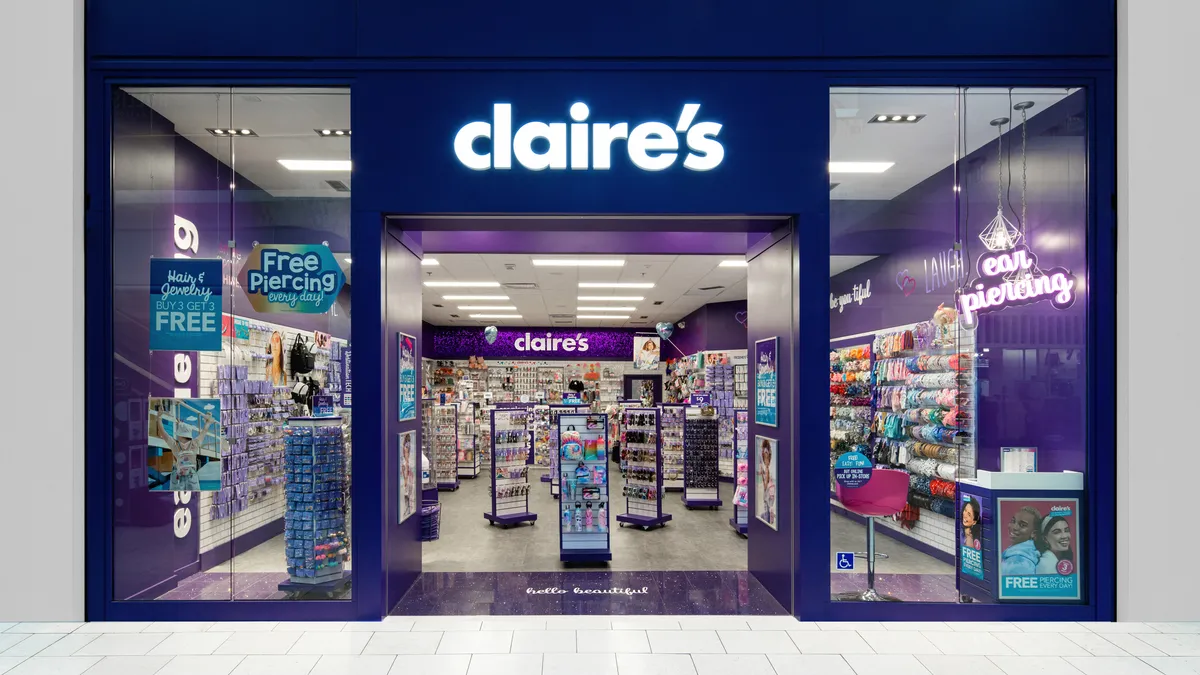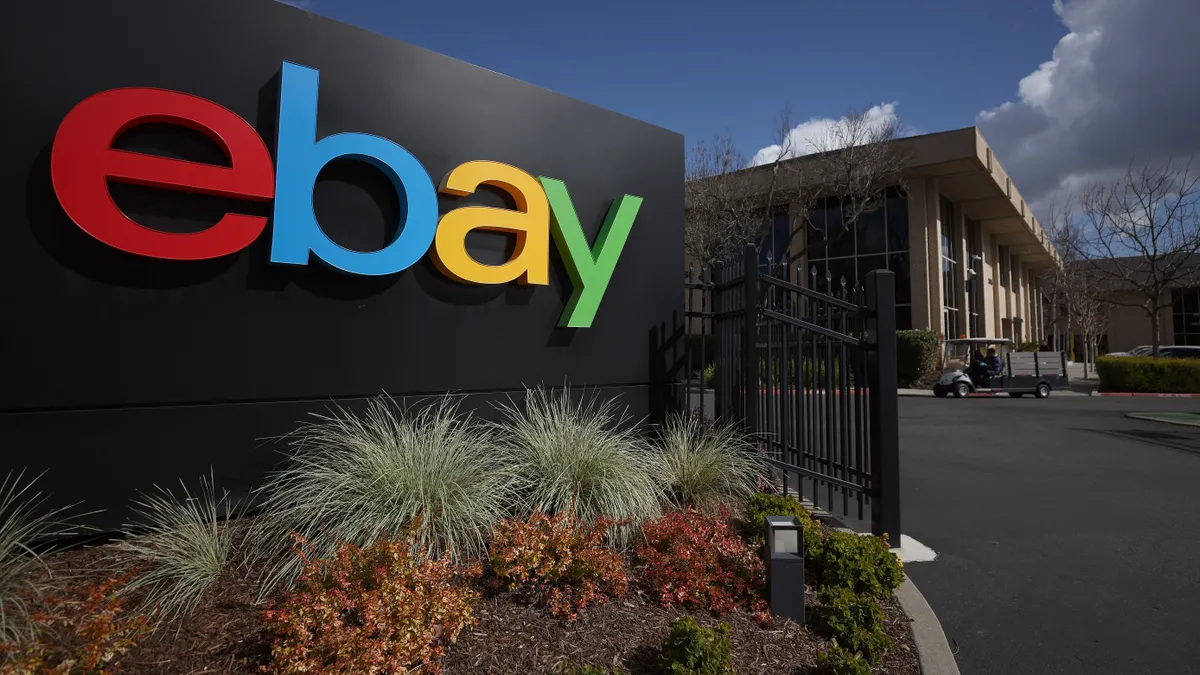Deals, it appears, go through cycles.
Some years the market is red hot and other times — well, things fall apart. Or shift in some way. For example, 2020 kickstarted a wave of initial public offerings. They hit a 20 year high, with a total of 12 IPOs in the retail segment. The following year saw a blizzard of special purpose acquisition companies, or SPACs, that were used as a vehicle for going public.
This year, Retail Dive has been tracking deals in many forms, including equity stakes, sales and spinoffs. And while a handful of mergers and acquisitions went through, a number of deals went awry. Financial deals didn’t necessarily fall apart, rather just went in a different direction than many analysts and observers expected.
Dealmakers are currently concerned with the increased cost of capital, according to Mark Williams, chief revenue officer at Datasite Americas. “Uncertain valuations are having a significant impact on M&A overall, including pausing larger acquisitions and merger processes, especially among corporate and private equity dealmakers,” Williams said in emailed comments.
Overall, consumer deal volume in the Americas, which includes retail, was down 31% through the first half of this year when compared to 2021, according to Datasite’s research.
Different factors have affected conditions for deals this year, according to Kirthi Kalyanam, professor of marketing and executive director of the Retail Management Institute at the Leavey School of Business at Santa Clara University. The retail industry is undergoing a transformation, which puts a lot of business models under pressure. In addition, macroeconomic headwinds and a proliferation of new retailers that have yet to show profitability are also impacting the market for deals.
The current deals environment is due to “misalignment between management and what investors want,” Kalyanam said.
Here are three deals that happened so far in 2022 that had a different outcomes than what originally was anticipated.
1. Kohl’s and Franchise Group
Kohl’s has had a dramatic year, which perhaps reached its zenith with the rejection of a takeover bid from Franchise Group. The holding company, which owns brands such as The Vitamin Shoppe, Pet Supplies Plus and Buddy’s Home Furnishings, offered the department store $53 per share, down from an earlier offer of $60.
“Despite a concerted effort on both sides, the current financing and retail environment created significant obstacles to reaching an acceptable and fully executable agreement,” Kohl’s Board Chair Peter Boneparth said in a statement at the time.
It may have been the best offer the retailer is ever going to get, according to multiple analysts.
“They got a pretty good offer,” Kalyanam said. “And they turned that offer down. And then they spent about $900 million so far in shareholder related dividends and buybacks … Kohl’s behavior to me is a head scratcher.”
But, the retailer may never have wanted the potential deal from the start. “Kohl’s management never really wanted to sell the business, favoring instead to follow their own strategic plans,” GlobalData Managing Director Neil Saunders said at the time of the takeover bid. “They entertained Franchise Group as it was the least worst option and would have kept the company intact and some of the current management in place, but they will not likely mourn the termination of talks.”
2. ODP and Staples
In the world of office supplies, ODP Corp. and Staples have been the will-they-or-won’t-they relationship of note.
ODP, which owns Office Depot and OfficeMax, decided this summer to reject all of its suitors and remain independent. The decision came after a lengthy process wherein Staples was pursuing a takeover that started in early 2021 in a bid of $40 per share or $2.1 billion. (ODP said that, in addition to Staples, the company also rejected another offer made by an unnamed party.)
ODP also decided against a spinoff of its consumer business. The company had been working on the plan for over a year which, if it would have gone forward, would separate out its business-to-business and retail units into two independent, publicly traded companies.
“They’ve got a B2B business, a B2C business — the two are aligned together. Breaking it apart causes the performance to become worse,” Kalyanam said regarding ODP. “I can sympathize with management … because if you sell one part of the business it affects the other part of the business. So the supply chains are intertwined. There are a lot of issues intertwined. So you say, ‘No, no no. If I do this, I’m going to hurt myself.’”
But the dance between Staples and Office Depot goes even further back. In 2015, Staples announced it would acquire its rival Office Depot for $6.3 billion, only to have the entire thing thwarted a year later when the Federal Trade Commission squashed the deal over concerns that the combined company would wield too much power and influence in the business contracts space, and thus hamper competition.
3. Blue Nile’s acquisition by Signet
At the start of the summer it looked like DTC jewelry retailer Blue Nile was going to re-enter the public markets via a SPAC deal with Mudrick Capital Acquisition Corporation II. The deal implied an enterprise value of about $683 million.
“As the pioneer of and category leader in online fine jewelry, Blue Nile is well positioned to win as the go-to e-commerce destination in the space,” Jason Mudrick, Mudrick Capital’s founder and chief investment officer, said in a statement at the time.
Blue Nile, which was founded in 1999, initially went public in 2004. It was then acquired in 2016 by Bain Capital Private Equity and Bow Street for around $500 million.
Blue Nile’s SPAC deal earlier this year was expected to close in the fourth quarter, resulting in the combined company listing on the Nasdaq.
However, a month after announcing the intent to go public, Signet Jewelers said it had struck a deal to acquire the DTC company for $360 million in cash. Signet, which is the parent company of Kay Jewelers, Zales and Jared, among others, said that bringing Blue Nile under its umbrella brought, “an attractive customer demographic that is younger, more affluent, and ethnically diverse which will broaden our customer acquisition funnel.” (It also followed the retailer’s acquisition of Diamonds Direct for $490 million.)
At the same moment Signet revealed its deal to buy Blue Nile, it dropped its guidance on both sales and operating income for the fiscal year, stating that customers were pulling back on spend due to heightened inflation.
An urge to go public but ultimately shifting to an acquisition illustrates a larger trend, with PwC stating that 2022 is “the quietest year for US-based IPOs this century.”
A number of factors including high inflation, rising interest rates and a potential recession has caused IPO activity “to slow to a crawl,” with over 60% of IPOs having been withdrawn this year so far, according to PwC’s research.
“The IPO market is not closed, but the current investor focus on scale, profitability and an attractive valuation is challenging for most companies in the pipeline,” David Ethridge, IPO services co-leader with PwC U.S., said in a statement.
What’s on tap for 2023
What happens in the fourth quarter will impact financial deals going into next year. “If this holiday season doesn’t go well, then you’re probably going to see more talks of mergers and acquisitions,” said Gautham Vadakkepatt, director of the Center for Retail Transformation at George Mason University, adding that smaller retailers could see consolidations or even bankruptcies.
Datasite, which facilitates over 13,000 deals a year, has seen an uptick in distressed assets on its platform over the past few weeks. Moreover, the median length of time for a new deal to launch and close on Datasite’s platform increased by 8%, January through September year over year. “Activity for next year doesn’t look as bad, though it’s still expected to be subdued,” Datasite’s Williams said.
What really may come to the forefront next year, though, is retailers looking for a way to either cash out financially or keep their brand intact, albeit under an umbrella corporation.
“As the market conditions become harder, and you actually see a separation of the winners and the losers in retail, you are likely to see more mergers and deals — just from a basis of that’s an exit option. Everyone thought that COVID bump that you saw, the pull forward of demand was going to persist,” Vadakkepatt said.



